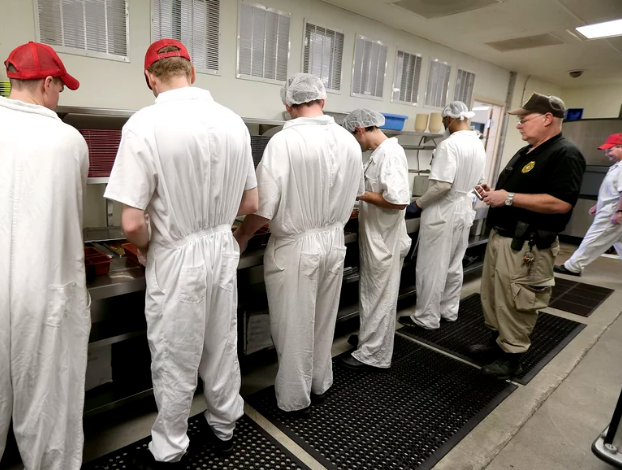Prop 6 - A Ballot Measure California Voters Can Support
Proposition 6 asks California voters to amend the state Constitution to ban involuntary servitude, which would end forced labor in state prisons.

The 13th Amendment to the U.S. Constitution abolished slavery, but it included an exception: Neither slavery nor involuntary servitude shall exist, except as punishment for a crime. Prison rights advocates say this exception allows for forced labor in prisons.
The work of prisoners is not covered by workplace safety regulations or other labor laws. Many are not trained to perform the work they are required to do, while others face horrific conditions, including toiling in extreme heat and working with dangerous machinery. Though they often face life-threatening risks, prisoners know they have little choice in the matter. Failure or refusal to work could result in punishment like solitary confinement or the denial of parole.
In 2018, Colorado voters passed Amendment A to the state constitution, which prohibits forced labor in prisons and became the first state in modern history to ban forced prison labor (Rhode Island banned the practice in 1842). Since then. Since then, there has been a growing movement across the U.S. to get rid of what's become known as the "exception clause." Nebraska, Utah, Alabama, Oregon, Tennessee and Vermont have all changed their constitutions to do so in the past three years. At least nine more have introduced legislation where residents will vote on this issue in 2024.
This includes California, where legislators are finally taking steps to abolish slavery from its constitution by banning it in state prisons. On June 27, 2024, the state legislature passed the End Slavery in California Act (ACA8), teeing up a statewide vote this fall on whether to end forced prison labor in the state. The measure, authored by Assemblymember Lori Wilson (D-11), was one of 14 bills the California Legislative Black Caucus prioritized this year as its lawmakers worked to carry out recommendations from the state-funded reparations task force. The task force last year issued a detailed report on the legacy of slavery and inequality dating back to the Gold Rush, when some Californians lived in enslavement despite California’s status as a free state.
“I have been forced to work jobs and had jobs where I couldn’t get out,” Lawrence Cox, a policy fellow with nonprofit Legal Services for Prisoners with Children, told a Senate committee on June 18. Formerly incarcerated for 17 years, he said officials at his prison threatened to write him up if he didn’t go to work. “When I wanted to take my on-site college courses to complete my degree, forced labor was prioritized over my rehabilitation.”
The racist legacies of slavery can still be found deeply embedded in the criminal justice system today, including compulsory carceral servitude for no or very little pay. Seven states do not pay wages at all to those they force to work. The rest pay wages that are usually less than $1 an hour. That outrageous wage even goes for the incarcerated Californians who have put their lives on the line to battle the state’s increasingly dangerous wildfires.
Abolishing slavery on paper is still an essential first step toward abolition. The technical abolition may encourage the adoption of policies that prevent people from ending up in prison in the first place. The more people who remain productive members of society, the greater the economic output of the states, which only serves to benefit us all.
Read more about Prop 6 in "If Californians vote to ban slavery this fall, will prisoners get a raise?" by Shaanth Nanguneri at Cal Matters, a nonpartisan and nonprofit news organization bringing Californians stories that probe, explain and explore solutions to quality of life issues while holding our leaders accountable.










